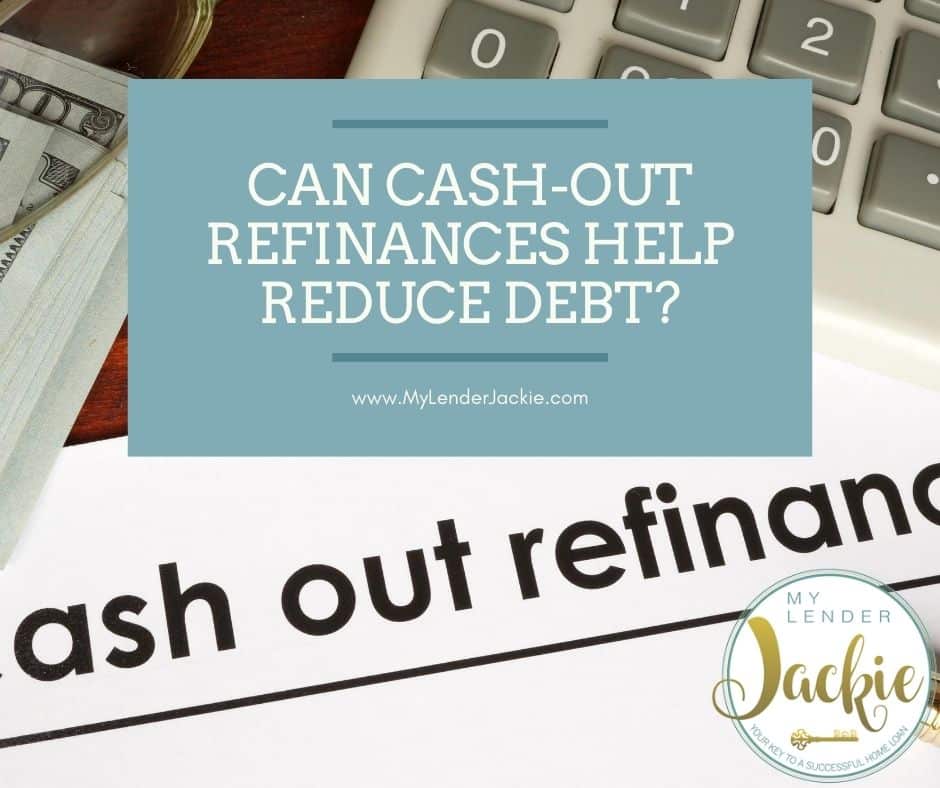If you have mounting debts that you are struggling to pay off and feel like you will never get beyond just paying the high interest, you may be looking for ways to help pay the debt down. One option some people look into is a cash-out refinance.
When you opt for a cash-out refinance you pay off your old mortgage loan by taking out a refinance loan, but instead of just taking out a new loan on what you owe on the home you take a loan for a larger sum of money that is dependent upon how much equity you have built up in your home. (Equity is the difference between its value today and what you still owe on your mortgage.) You then receive the extra amount of money as a lump sum cash payment. This money can be used for anything you decide, including paying down other debts.
So if you owe say $280,000 on your home but its current value is $378,000 you have earned $98,000 in equity. This is a substantial sum. You could apply for a cash-out refinance and pay off the old loan that is currently at $280,000 but borrow maybe $315,000 on your new loan instead. The $280,000 is used to pay off the existing mortgage and the remaining $35,000 can be used to pay off debt. This could be a helpful way to get ahead of your other debts, but some things should be taken into consideration before making the commitment to a larger home loan.
Your Mortgage Payment Becomes Larger
Yes, you will have the opportunity to get rid of all of your other debts, but because you are now borrowing a larger total sum of money, your monthly payments will be slightly higher. The good news here though is you are essentially putting those other debt payments into your monthly mortgage payment, but with less interest. The average 30 year fixed rate mortgage is at an all-time low hovering around 3% right now. The average credit card interest rate is a whopping 17.73 percent. Yikes! Swapping the credit card interest for the mortgage interest can save you a lot of dough in the long run if you are able to make a higher monthly mortgage payment.
You May End Up Extending Your Home Pay Off Date
If you are several years into paying off your home and turn your refinance into a new 30-year term, it is going to take longer than the original 30 years to pay off your loan. You are starting the 30 years all over again. If you would like to avoid this, you might want to look into the possibility of qualifying for a 15-year refinance option. This will though come with a higher
Get Started Todaymonthly payment.
You Need Plenty of Equity to Qualify
One of the main requirements to qualify for a cash-out refinance is that you have at least 20 percent home equity. This home equity needs to be above the new refinance amount. So using the model above if you borrow $315,000 to refinance a loan for $280,000 the value of your home needs to be worth $378,000 which is 20 percent equity over the new borrowed amount.
Related: Should you co-sign on your kid’s mortgage?
There are Still Closing Fees
A cash-out refinance is just like any other mortgage in that there will be fees to close out and finalize your new mortgage. Make sure you plan and account for those fees which on average cost about $3,000.
So Should You Apply for a Cash-Out Refinance?
To determine if swapping the high-interest credit for the low-interest mortgage is right for you, you will need to calculate if the savings in what you would pay in interest is greater than the increase in your monthly mortgage payment and what you are paying in mortgage interest.
A cash-out refinance used as a solution to pay off debt is most beneficial to those with very large amounts of debt to pay. If you are paying, for example, $2,0000 a month in just credit interest trading that for a $200 a month higher mortgage payment is definitely the way to go. This is a good decision for anyone that would have a larger total sum of credit payment a month than the hike in mortgage dollars after re-financing. Just don’t forget to include those closing cost fees as well.
Are you looking for refinancing options in California? Contact me today I would love to help you discover your options.
More Refinance Tips for Homeowners:
- The Basics of No-Closing-Cost Refinances
- Can I Use a Refinance to Buy a Second Home?
- Can I Refinance if I’m Self Employed?
- When Does it Make Sense to Refinance?
- 7 Simple Steps to an Easy Refinance
- Want to Remodel But Can’t Save That Much? Time to Refinance
- Which is Better? Loan Modification or Refinance?


